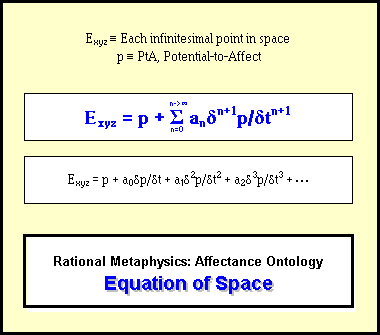Obvious Leo wrote:JSS. You seem to be ignoring a host of inconvenient facts in your model.
I have litle doubt that the reverse is far more true.
Obvious Leo wrote:That matter can be infinitely divisible is a logical absurdity
You keep saying that yet provide none of the logic required to substantiate the claim. As I have told you before, you are attempting to [still] defend an indefensible position.
Obvious Leo wrote:and the origin of the properties of the subatomic particles remains unexplained.
Well certainly as long as you keep ignoring any explanation on absurd unsupportable grounds, you are not going to see any explanation. But that will never mean that it wasn't there.
Obvious Leo wrote:Where does time fit into the story is also a question which springs to mind because no statement can be made about gravity which is not also a statement about time.
That is something that you have been convinced is true, yet you have no proof that it is. I happen to know that it is true, but I know WHY it
must be true. But then you want gravity to be spoken of even before time .. why?
Affect directly implies time
already. To affect means to cause change. Time is merely a relative measure of such changing. Merely by saying "affect", I have inherently included time. Gravity on the other hand emerges through a complexity involving a gradient in density of affects upon affects.
As it turns out, due to density of affectance, time and a
gravity field are very related, just as GR indicates. But a gravity field is a
gradient of affectance density. The field is "thicker", more dense, closer to the central mass. It is that [ontological] density that causes the time measurement effects, not the gradient slope. But
gravitation is due to the slope, the
gradient of the affectance/mass field. And that can be explained in extreme detail. This just isn't the thread for that.
Obvious Leo wrote:The affectance idea is inelegant but not foolish by any means but it seems to me to be just as non-mechanical as the quantum field theory which you so justly ridicule. Why is yours not just another "ontology of equations"?
"in-elegant"?? Not really, but you have only begun to scratch the surface. The Affectance concept could not get more elegant once you clear up the confusions of which you have been taught.
The equation for literally
every point throughout all space is simply:
Exyz = p + a0dp/dt + a1dp²/dt² + a3dp³/dt³ + …
Or:
 All physical behavior
All physical behavior arises from that one equation (properly applied).
Dubious wrote:As to how science can be done without philosophy is simple. The scientific method was established somewhat late in our history precisely to leave philosophy and religion out of it, endorsed instead by experimentation, observation and not least, imagination.
No, no, no. Science was developed much the same way as Christianity. They were both pushed forward and insisted upon
so as to stop any OTHER philosophy.
Science is merely one philosophy being applied. A good one, but still merely a philosophy: the "try it and see" philosophy.
But as such, the philosophy that we call the "Scientific Method" can only verify philosophical hypotheses. Science knows nothing of truth, only of verification through demonstration that something isn't provably wrong. Science can never prove a truth on its own, only a falsehood.
